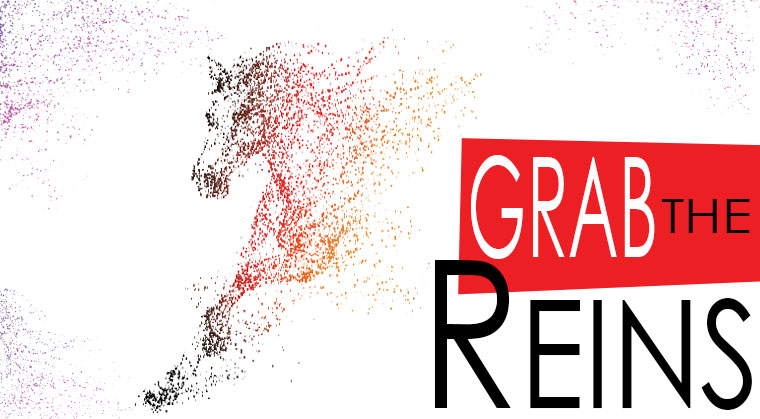Grab the Reins: Chapter 14


Hudis pointed to the whiteboard where Shimon our teacher had printed the words “Step Four” in large letters. “I understand how this technique dissects anger so you can see the situation the history even your own feelings with a new pair of eyes. But what I don’t get is this ‘my responsibility’ part. How’s it Leah’s fault that her neighbor borrows things and never returns them?”
“Step Four” Shimon said “isn’t about finding fault or blaming but taking responsibility.”
“Fine fine so how’s it Leah’s responsibility?”
Shimon put down his marker. “Leah how many times over the years has this neighbor borrowed something and not returned it?”
Leah shrugged. “A hundred two hundred.” “Leah’s part” Shimon explained “is that she continues to lend her things.”
“She doesn’t have much choice” Gabi said.
“Why?” Shimon asked. “Because if she says no the neighbor’ll be upset? Because it’s not nice to say no? Because people won’t like her?
“Leah does have a choice every time. She’s a willing participant. That doesn’t remove responsibility from the neighbor but the neighbor’s not our concern we can’t change her.”
Ahuva raised her hand. “What about real victims? I mean…” She rubbed a spot on her left arm. “Say someone was… abused or hurt. They’re not a willing participant.”
Shimon’s features softened. “Like a child you mean. A child who was hurt taken advantage of.”
Ahuva’s eyes were on the floor but she gave a small nod.
“A victim has no way to stop whatever happens. She bears no responsibility for the actual event. Her part might be—”
Gabi burst out “You can’t possibly lay any responsibility on a child!”
Everyone started talking at once. Tension swept through the room weaving thorny tendrils around and between us.
Shimon raised his voice over the sudden tumult. “This is such an important point please let me explain.”
The noise died down.
“There are situations in which a person’s participation is entirely against his will. The responsibility does not lie in her actions but rather with what happens afterward.” He looked at Ahuva. “If she’s able to she can share what happened with someone she trusts.”
“But maybe she can’t.” Ahuva’s voice quivered. “Maybe she doesn’t know how or doesn’t have anyone to share with.”
Her eyes were wet. Something twisted inside me.
Shimon nodded. “And maybe she did share and was not believed or screamed at” he said. “Maybe she was too young to talk too shy too afraid. There are many reasons people don’t or can’t share.
“But sometimes maybe years later she’ll use what happened as a justification for her own actions. Maybe she’ll become abusive and refuse help. Maybe she’ll be angry and withdrawn and keep the grudge alive because it unconsciously serves some purpose.”
“But she probably doesn’t even know she’s doing that” Hudis said.
“Right. And we don’t blame her for being angry jealous or critical. But even something that’s not her fault not within her control or even her awareness can still be her responsibility.” (Excerpted from Family First Issue 550)
Oops! We could not locate your form.


